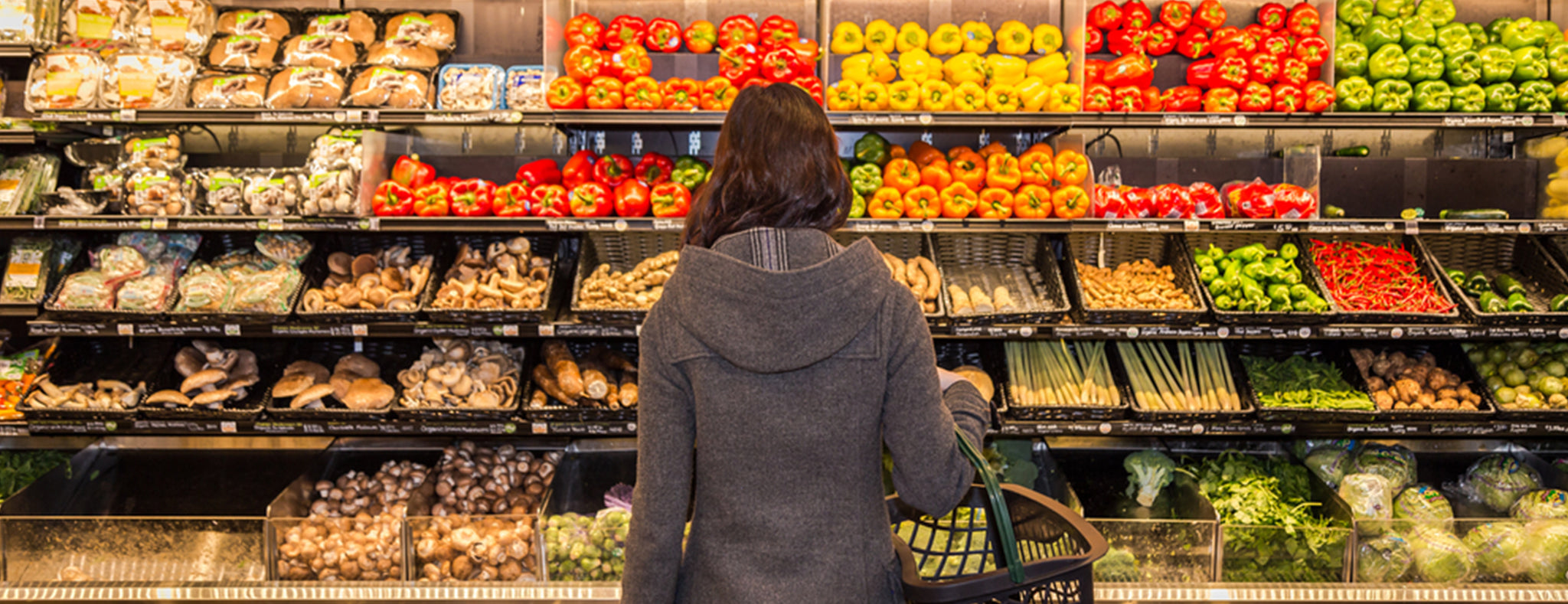Good Habits to Have to Help Enforce a Healthy Eating Plan
In the vast world of food, many experts agree that there aren’t any specific “good” foods or “bad” foods. A major key in establishing a healthy eating lifestyle and reaching your nutrition goals are moderation and consistency. While having these two qualities will have you well on your way to having a healthy relationship with your food, it still is possible to have bad eating habits that will hinder you on your journey.
The way you eat food can negatively affect your health and even your risk for certain diseases! You might even have some bad eating habits you are not aware of – whether you’re a midnight snacker, breakfast skipper, or just have grown accustomed to eating while binge watching your favorite show. Don’t fret, we all have something we can improve to lead healthier lives. Fortunately, changing these habits and turning them into positive ones isn’t as difficult as you think.
Yes, you may need to make some small changes in your daily life or maybe your environment, but it isn’t as intimidating as it seems. You really don’t need to be making gigantic changes to eat healthier. In fact, it probably is beneficial to introduce small changes one by one, slowly over time. We recommend setting small fitness goals to reach and then set more once you consistently are hitting them. Small changes can really have a big impact over time, so don’t underestimate them!
Here are some good habits that you can start that will get you on the right track to a healthier, and happier lifestyle.
1. Keep the Pantry Stocked

Keeping a stocked pantry at near all times is a game changer for creating better eating habits. If the only fresh item you have leftover is an onion, a well stocked pantry will be more than enough for you to get dinner going. The idea is that you will have more food and dishes readily available to make at home. This will in turn help you cutback on unhealthy alternatives such as fast food and takeout. It really doesn’t take much to be able to turn things into a healthy and delicious meal.
Be sure to stock your pantry full of healthy picks that can last the test of time. Some good items to have on hand are dried grains such as rice, beans, lentils, plenty of dried herbs, coconut milk, sardines, tuna, canned tomatoes, coconut milk, salmon, and of course the pantry classic, pastas. Use this same logic to your fridge and freezer and keep a healthy supply of frozen vegetables and good meats and dinner time is set.
2. Focus on the Meal

In our new technology filled lifestyles, it is very common to eat some grub while on some kind of screen. It’s very easy to eat more than you should when you are mindlessly scrolling through all your social media apps, responding to messages, or watching that new binge-worthy TV show. You’d be surprised with how much we overeat when we’re distracted with all these things. On top of not paying attention to how much you’re eating, dietitians have said it actually takes longer for our bodies to register and inform our brain that we are full when preoccupied with other activities.
A good way to combat this form of overeating is to make all your meals an event. Your meals should be something you look forward to and focus on. Most meals wont take longer than 15 minutes of your time, so fit it into your calendar. Sit down and share the meal with a loved one or make something new to spice up your routine. Be more present while eating and you might notice flavors you may not have noticed before. And better yet, there is less of a chance you’ll be overeating consistently. You should know these tips to start and maintain healthy eating lifestyle.
In short, put down the phone and turn off the TV when you eat. All your messages and shows will still be there when you finish.
3. Clean Your Kitchen

It’s a little embarrassing to admit, but many people really do decide against cooking something up just because their kitchen isn’t clean. We get it, getting the motivation and energy to cook is hard enough after a long day at work. Adding another tiresome and tedious task that needs to be taken care of to that list almost guarantees that we’re grabbing some takeout on the way home. Odds are, no one in that household wants that task either. Whether we like it or not, cleaning the kitchen is something we need to get used to. If left unchecked, a constantly dirty kitchen can be the driving force for unhealthy eating.
A good fix to combat this is to make it a habit of cleaning while you’re cooking. Not only is it time efficient, but it also ensures that your kitchen is fresh and ready to make the next meal, all before your current meal is even over. It makes the task less daunting as there is less to clean once you are done eating. If not, make sure it gets done sometime the same night so the next day you can be recharged and ready to cook once again.
4. Go to the Grocery Store

This one can be quite obvious, but it still is a good habit to form. Odds are you probably are not going to cook at home if there isn’t anything at home to make. People tend to avoid grocery shopping because it can be a major pain at times. But it is an important habit to have if you want to control what you eat more. Shopping for groceries is an essential part of eating healthy, so invest some time into finding out how to minimize the inconvenience it may cause you.
Sometimes all it takes to build a better relationship with grocery shopping is to change your schedule up a bit. Find out what times the store is less crowded and adjust your schedule accordingly. Maybe find a new store that has better shopping options or just has a better overall vibe. Plan out and write down what you need before you go to make the trip easier and efficient.
5. Be Careful of Over-Exercising

We’ve all been there. After a satisfying, sweat dripping workout, we eat a gigantic meal because we “deserve it”. The idea makes sense, we just used a ton of energy to get through our workout, so therefore we need to refuel our body with food. But if you over-exercise, your strong hunger will drive you to reach for much larger portions than you would usually eat. These portions typically consist of very dense, calorie-filled foods to help us feel satisfied. Over time this can actually have the opposite effect of going to the gym, and you’ll find yourself having gained weight instead of losing weight.
Being active and exercising is an important part of your health and there is no doubt about that. But if you’re not training to compete at a serious level, consider exercising for pleasure instead of a punishment. You’ll be less likely to overeat as a reward. Here is another resource in case you want to learn more about what to avoid after working out.
6. Don’t Skip Meals

We get it, life is busy. But skipping meals isn’t doing much to help you with that, especially on the health front. Skipping a meal doesn’t really save you that much time and it can actually make your productivity worse. Skipping a meal can have you feeling sluggish, moody, and hungry. Ultimately skipping meals will also slow your metabolism which leads to weight gain.
Meals are important so treat them as such. Schedule them into your calendar like you would a meeting.
7. Eat Your Veggies

The majority of Americans aren’t eating their vegetable requirements on the daily. In fact, statistics show that less than 1 out of 10 actually eat the doctor recommended amount. Getting your daily dose of vegetables can offer a major boost to your health. These greens can provide antioxidants that protect against inflammatory issues and aid your immune system. They also promote a healthy gut environment, giving you the broad range of nutrients from vitamin A to zinc. Eating more veggies can also take up more room on your plate which leaves less space for less nutritious options and help support your weight loss.
Take a page out of the food pyramid we learned in grade school and start munching on those nutrient rich veggies. Many people don’t get their first veggies until dinner time. Try snacking on veggies throughout the day. Dip some vegetables into hummus, eat a side salad, try some stir fry, there are plenty of options out there for you to try.
8. Stay Hydrated

When you’re dehydrated, your body can confuse that thirst for hunger. Eating instead of drinking can lead to overeating while doing nothing for your hydration. Being dehydrated can leave you feeling dizzy, tired, and confused which will only mess with your productivity.
Keep a water bottle handy wherever you go. If water is easily accessible and readily available, odds are you’ll probably drink it more. Having a visual cue will help remind you to take a sip here and there.
